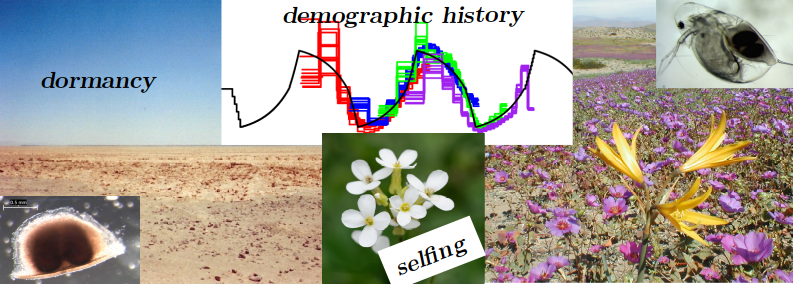
Footprints of past species history and ecological/life-history traits in full genome data: consequence and inference
The field of evolutionary genetics is profoundly rooted in stochastic mathematical theory and since several years the theory has been extended to model the evolution of full genomes. Indeed, large amount of full genome data are becoming available for human but also non-model organisms. Several methods based on the Sequential Markovian coalescent (SMC) have been developed to use sequence data to uncover population demographic history. While these methods can be applied in principle to all possible species, they have been developed based on the human biological characteristics and have main limitations such as assuming sexual reproduction, no overlap of generations, and small variance in offspring production. However, in many plants, invertebrates, fungi and other taxa, these assumptions are often violated due to different ecological and life history traits, such as self-fertilization, long term dormant structures (seed or egg-banking) or sweepstake reproduction.
I will first describe a novel SMC-based method which we developed to jointly infer 1) the rates of seed/egg-bank and of self-fertilization, and 2) the populations’ past demographic history. The method was extended to detect and to date the changes of selfing / seed banking in time. Second, I will show an attempt to build an SMC method for a general class of coalescent models, the multiple merger coalescent, for species with large variance in offspring production. We are able to distinguish between the classic Kingamn and the multiple merger model under various complex demographies, but the accuracy of estimations of demography remains limited. A major reason for this lack of power is that SMC method are based on the assumption of a Markovian process along the genome. The latter may be violated in species with peculiar life-cycles and/or low recombination and strong selection.
En présentiel : Salle UMR - Le Moulon

En rejoignant la visioconférence, veuillez vous identifier en indiquant NOM, prénom, labo, SVP.